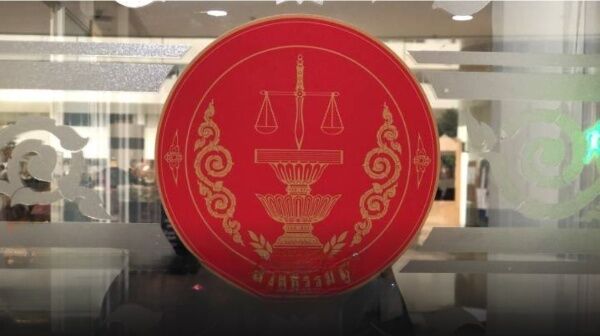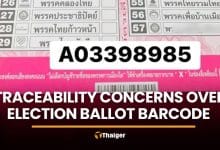Court to review senate election law challenges

The Constitutional Court decided by an 8-1 vote to consider two petitions challenging the legality of key provisions in the law governing the election of the nation’s 200 new senators. The decision has sent shockwaves through the political landscape, raising questions about the upcoming senatorial elections.
Despite agreeing to review the petitions, the court unanimously dismissed the petitioners’ call for an immediate injunction. The court stated that such a measure was unnecessary, as no damage had occurred. They assured that if any issues arise, the Election Commission (EC) has full authority to address them.
The first petition, filed by Vitoen Ngamplung, questions whether Sections 36, 40, 41, and 42 of the senatorial election law violate Section 107 of the Constitution. The second petition, submitted by five senatorial candidates, similarly challenges the constitutionality of three sections of the organic law.
In a move to streamline proceedings, the court announced that these petitions would be merged due to their similarities. The EC and other relevant agencies have been given five days to present their rebuttals.
The electoral timeline remains unchanged, with the first round of district-level elections having taken place last Sunday, June 9, followed by provincial elections this coming Sunday, June 16, and national-level elections on June 26. The final results will be announced in July, reported Thai PBS World.
Candidates, divided into 20 professional groups, will select their peers in a process devoid of direct public voting.
ORIGINAL STORY: Sneaky senators: Hired votes spotted in upcoming election
As the upcoming Senate election round approaches, caretaker senator Somchai Swangkarn anticipates the revelation that certain individuals have been recruited solely to vote for candidates endorsed by specific political parties or interest groups.
Somchai, who has consistently pointed out attempts to manipulate the Senate election outcomes, stated that a review of Sunday’s district-level voting results showed many applicants receiving no votes, while others garnered immense support.
This situation potentially arose from a loophole in the organic law governing the Senate election, which permits candidates to vote for themselves and others.
He suggested that political parties or interest groups may have financially backed some who received zero votes to enter the race just to cast votes for other candidates.
Genuine concerns were expressed regarding the slim chances for candidates without the backing of organised groups, said Somchai.
“If we keep an eye on the provincial-level voting tomorrow, signs of collusion will become evident. Only those supported by certain parties and groups will advance.”
Election Commission criticisms
Somchai criticised the Election Commission (EC) for not thoroughly vetting the candidates’ backgrounds, alleging that many may have misrepresented their professional experiences. The EC was further criticised for allowing candidates to bring documents to the voting booth, noting that some had instructions on whom to vote for.
Somchai stated that he could only monitor the election and alert the public to potential irregularities because, under the law, only district-level election officials are authorised to file complaints at this stage.
A senatorial candidate in Mae Hong Son claimed yesterday, June 10, that several candidates in his province were paid 5,000 baht each by political groups to apply so they could vote for certain candidates.
He asserted that the hired candidates did not attempt to lobby others or introduce themselves and that political parties and interest groups fielded candidates in every group to dominate the voting process.
Separately, when asked if the Senate had received any complaints about the election, caretaker senator Seree Suwanpanont said reports of alleged irregularities must be submitted to the EC for investigation, adding that there is no evidence to back up the complaints they’ve heard.
Seree mentioned that there was nothing irregular or wrong with high-profile candidates being elected by their peers, noting that several well-known candidates did not make it to the next round. He said the results would only be voided if the Constitutional Court determined that the election was in breach of the charter, reported Bangkok Post.
Latest Thailand News
Follow The Thaiger on Google News:


























